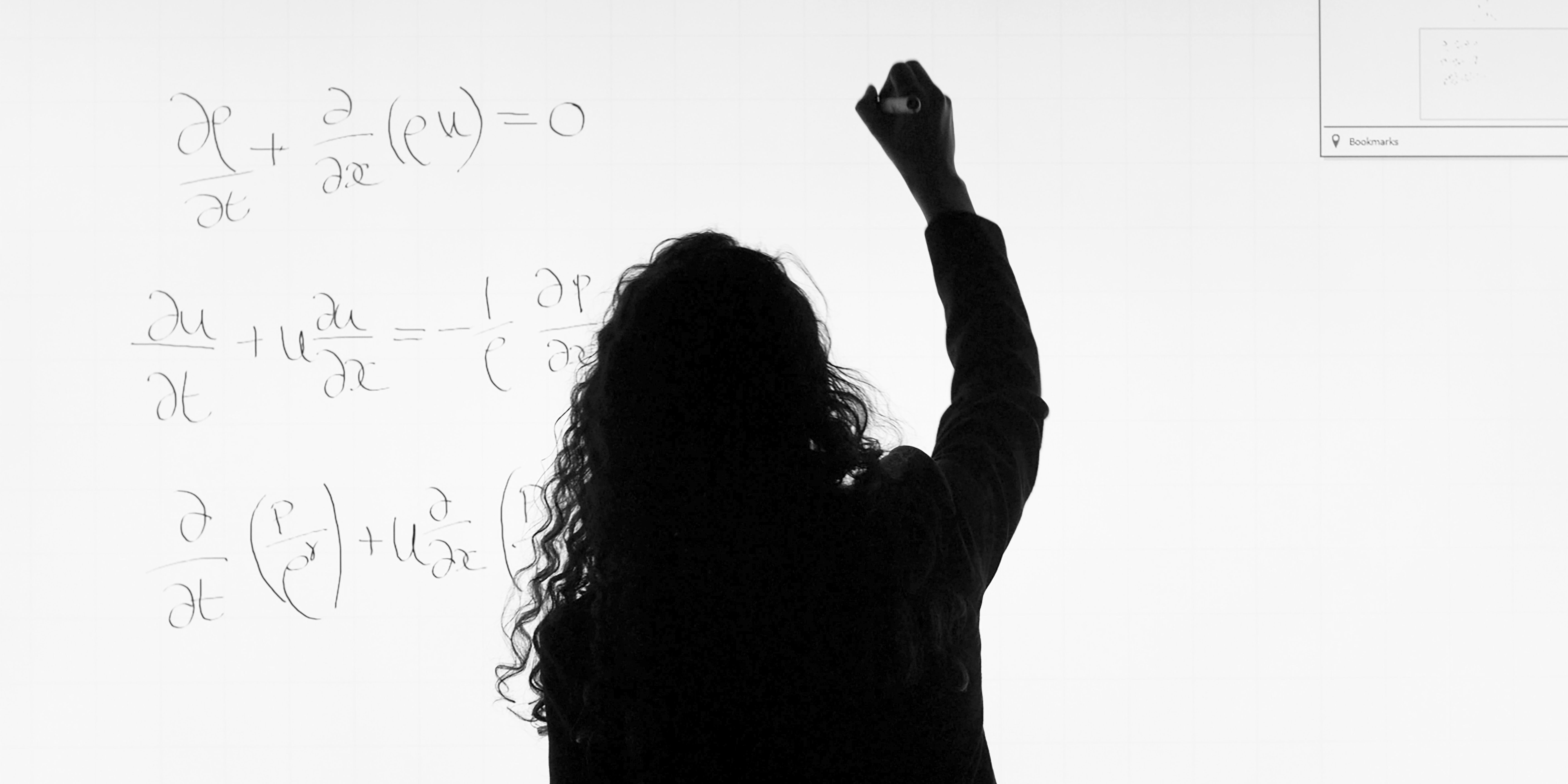Bachelor of Arts in Mathematics Degree Program Guide

Do you love math and reading? With this program, you don’t have to choose! A Bachelor of Arts in Math is similar to a Bachelor of Science in Math, except that it incorporates more of a liberal arts focus into your core requirements. This approach of combining scientific principles with liberal arts concepts is also found in fields such as linguistics, psychology, and anthropology, and produces well-rounded and versatile graduates.
Studying mathematics develops your problem-solving skills, trains you to think logically, and helps your decision-making abilities, all of which are valued by employers in many industries. Open up a world of analytical thinking, problem-solving, and critical reasoning skills with this exciting, interdisciplinary program.
Academic Requirements for Mathematics Majors
- Minimum of 30 units to a maximum of 48 units of senior-level Mathematics courses including 6 units at the 400-level
- 3 units from your choice of:
- MATH 117 - Honors Calculus I
- MATH 134 - Calculus for the Life Sciences I
- MATH 144 - Calculus for the Mathematical and Physical Sciences I
- MATH 154 - Calculus for Business and Economics I
- 3 units from your choice of:
- MATH 118 - Honors Calculus II
- MATH 136 - Calculus for the Life Sciences II
- MATH 146 - Calculus for the Mathematical and Physical Sciences II
- MATH 156 - Calculus for Business and Economics II
- 3 units from your choice of:
- MATH 125 - Linear Algebra I
- MATH 127 - Honors Linear Algebra I
- MATH 216 - Introduction to Analysis (See Note 1)
- MATH 226 - Algebraic Structures (See Note 2)
- STAT 265 - Probability and Statistics I
- 3 units from your choice of:
- MATH 214 - Calculus III
- MATH 217 - Honors Calculus III
- 3 units from your choice of:
- MATH 225 - Linear Algebra II
- MATH 227 - Honors Linear Algebra II
- 3 units from your choice of:
- MATH 315 - Calculus IV
- MATH 317 - Honors Calculus IV
- 3 units from your choice of:
- MATH 334 - Ordinary Differential Equations
- MATH 336 - Honors Ordinary Differential Equations
- 3 units from your choice of:
- MA PH 364 - Group Theory in Physics
- MATH 327 - Algebra I
- 3 units from your choice of:
- MATH 311 - Theory of Functions of a Complex Variable
- MATH 411 - Honors Complex Variables
- 3 units from your choice of:
- MATH 348 - Differential Geometry of Curves and Surfaces
- MATH 448 - Introduction to Differential Geometry
- Students who successfully complete MATH 117 must replace MATH 216 with 3 units selected from MATH at the 200-level or higher
- Students who complete MATH 127 and MATH 227 can replace MATH 226 with 3 units selected from any 200-, 300-, and 400-level MATH course
- With consent of the Department, students may substitute MATH 100 for MATH 117, MATH 134, MATH 144, or MATH 154; MATH 101 for MATH 118, MATH 136, MATH 146, or MATH 156; MATH 102 for MATH 125 or MATH 127
- Several of the 400-level options, including MATH 411 and MATH 448, may only be offered in alternate years
The University of Alberta Calendar will always contain the most up-to-date degree requirements for your program, and your requirements are determined by the calendar year you were admitted in.
What kinds of courses can Mathematics students take?
For a full list of MATH courses offered by the University of Alberta, visit the course catalogue.
What kinds of careers can you pursue with a Mathematics degree?
There are many different fields and career paths that students can pursue with a BA Mathematics degree. From data analysis to logistics, graduates are equipped with analytical, research and critical thinking skills to name a few, that are assets in today’s job market. Although there is a list of career options below, it is important to understand that careers are not linear. Intentionally engaging in a variety of activities and following your curiosities will open new opportunities that you might not have expected. To learn more about how you can put your Arts degree to work, stop by the HUB Career Centre (8917 HUB Mall) for more information.
- Data Analyst
- Statistician
- Data Scientist
- Operations Research Analyst
- Logistics Coordinator
- Supply Chain Analyst
- Market Research Analyst
- Project Manager
- Business Analyst
- Educator (Professor, Secondary or Primary)
- Risk Management Consultant
- Mathematics Modeler
- Quantitative Analyst
- +More!
Interested in gaining work experience related to your career goals? If so, apply to Arts Work Experience to gain full-time, PAID, work experience before you graduate!
Important Links
- Department website
- Students’ association information
- Full program overview
- Prospective student information and application
- Graduate studies information
- Current Arts student advising
Department Contact Information
- Department Undergraduate Student Advisor email: mssugrd@ualberta.ca